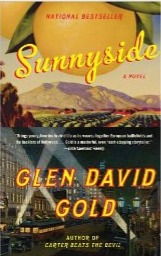Hendrik Hertzberg on the Brown-Cameron-Clegg faceoff yesterday.
bq. Mainly, though, I was struck by how superior this event was to its typical American counterpart, in a number of ways:
* The crispness and clarity of the debaters.
* The businesslike, non-preening moderator, David Dimbleby—the Brits, it seems, still have a Cronkite.
* The audience, which listened attentively and respected what I assume was a request to refrain from applauding or hooting or otherwise behaving like a mob or a claque.
* The fact that neither Cameron nor Clegg went medieval on Brown for his ridiculous “bigot” gaffe—not that doing so would have benefitted them, given British manners.
* The near-total lack of obviously rehearsed zingers. (Emphasis on obviously.)
* The fact that none of the candidates appeared to be a sociopath, a delusionary, a demagogue, or a serious neurotic. They all seem to be relatively decent people.
Patrick Dunleavy
bq. The dominant feeling was just how bad the House of Commons is as a preparation for government leadership. Parliament teaches MPs to emote, not to reason very well, not to argue, but just to have feelings and find ways of projecting this to others – in short to emote. The acme of a good Commons performance is to emit the maximum number of units of emotion (let’s call them emoticons for short) in any given time period. In the final Prime Ministerial debate David Cameron solely concentrated, and Nick Clegg mainly concentrated, on maximizing the number of emoticons they emitted. You kind of lost count of the number of time they said “What I think is that…”, with a kind of verbal double-bold, large font sign around the I. It doesn’t really matter in the Commons if you are apparently solipsistic, you see – a level of self-absorption that might look a bit mental in other occupations is par for the course amongst top politicians. Nor does it matter what on earth the basis of your emotion or feeling is, just to underscore that you really do feel it. David Cameron’s advocacy of ‘Time for an (unspecific) change’ made the overall vagueness and lack of any intellectual or factual or evidential grounding to what he said really rather starkly apparent. David, it seems, wants what we all want, only he really wants it. When Brown or Clegg pressed him for anything detailed by way of an answer, a kind of ‘disbelief face’ crept over him – his expression said that he just could not believe that a responsible politician could behave in such a bad taste way in public.
I don’t know which of them is right or wrong (I only watched about 2 minutes of the debate myself, having a paper to write on urgent deadline), but found the dissonance interesting. Also Hertzberg’s suggestion that we would be much better off taking a lesson from a Swedish debate that he once saw, where the leaders had briefers behind them with stacks of paper, whom they could mutter to in order to get information as needs be (a sort of open book exam). Also, this bit from Charlie Brooker (via Ian McDonald).
bq. According to some polls, Cameron won, or at the very least tied with Clegg. Which is odd, because to my biased eyes, he looked hilariously worried whenever the others were talking. He often wore a face like the Fat Controller trying to wee through a Hula Hoop without splashing the sides, in fact. Perhaps that’s just the expression he pulls when he’s concentrating, in which case it’s fair to say he’d be the first prime minister in history who could look inadvertently funny while pushing the nuclear button.
American readers may wish to be informed that the “Hula Hoop” in question isn’t this but this.
